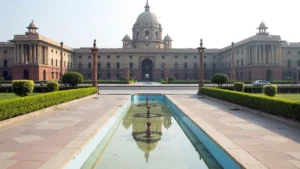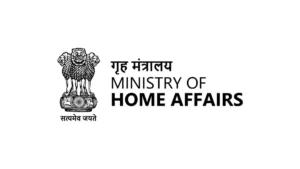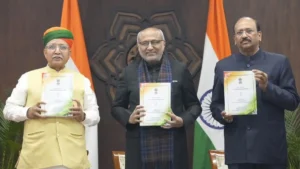The Supreme Court’s landmark decision on December 11, 2023, upheld the Union Government’s 2019 move to abrogate the special status of Jammu and Kashmir (J&K) under Article 370 of the Constitution. The judgment, delivered by a Constitution bench led by Chief Justice of India DY Chandrachud, addressed key constitutional questions and outlined significant conclusions.
1. Upholding the Abrogation of Article 370
The Supreme Court validated the Union Government’s decision to revoke the special status of J&K under Article 370, emphasizing that the state had no internal sovereignty. The court clarified that the concurrence of the State Government was not necessary, and Article 370 was deemed a temporary provision.
2. Status of Union Territory (UT) and Election Directive
The Court refrained from adjudicating on the reorganization of J&K into a Union Territory but upheld the creation of Ladakh as a UT. It directed the Election Commission to conduct elections for the J&K Legislative Assembly by September 30, 2024.
3. Constitutional Order 272 and Validity of Presidential Actions
The Court addressed the modification of Article 367 through Constitutional Order 272, stating that changes made were ultra vires Article 370. However, this finding did not impact the overall judgment, as the recommendation of the J&K Constituent Assembly was deemed unnecessary for the President to declare Article 370 inoperative.
4. Recognition of J&K’s Integration with India
The judgment underscored that Jammu and Kashmir did not retain an element of sovereignty upon joining the Union of India. The constitutional setup indicated that J&K became an integral part of India, with Article 370 being a feature of asymmetric federalism, not sovereignty.
5. Article 370 as Temporary Provision
The Court affirmed that Article 370 was a temporary provision, and the power of the President under Article 370(3) to declare it inoperative persisted even after the dissolution of the J&K Constituent Assembly. The recommendation of the Constituent Assembly was not binding on the President.
6. Presidential Power under Article 370(1)(d)
The Court held that the President’s exercise of power under Article 370(1)(d) to apply all provisions of the Constitution to J&K did not require the concurrence of the State government. The principle of consultation and collaboration was not mandatory, and the President’s action was deemed valid.
7. Validity of J&K Reorganisation Act 2019
The Court did not find it necessary to adjudicate on the validity of the J&K Reorganisation Act 2019, considering the Solicitor General’s assurance that J&K’s statehood would be restored. The reorganization of Ladakh as a Union Territory was upheld.
8. Directive for Truth and Reconciliation Committee
Justice SK Kaul recommended the establishment of a “Truth and Reconciliation Committee” to investigate human rights violations in J&K since the 1980s and propose reconciliation measures. However, the manner of setting up the committee was left to the government, considering the sensitivity of the issues involved.
9. Restoration of J&K’s Statehood
The Court directed the Election Commission to conduct elections for the J&K Legislative Assembly by September 30, 2024, and emphasized the restoration of J&K’s statehood as soon as possible.
Important Questions Related to Exams
Q1: What did the Supreme Court uphold regarding Jammu and Kashmir’s special status under Article 370?
A1: The Supreme Court upheld the 2019 revocation of J&K’s special status, confirming it as a temporary provision and validating the President’s power to apply the Constitution without state government concurrence.
Q2: What was the Court’s stance on Ladakh’s Union Territory status?
A2: Ladakh’s Union Territory status was upheld by the Court.
Q3: Did the Court address the validity of the J&K Reorganisation Act 2019?
A3: The Court did not find it necessary to adjudicate on the validity of the J&K Reorganisation Act 2019, given assurances of J&K’s statehood restoration.
Q4: What directive did the Court give regarding human rights violations in J&K?
A4: Justice SK Kaul recommended the establishment of a Truth and Reconciliation Committee to investigate human rights violations since the 1980s, leaving the manner of setup to the government.
Q5: What steps did the Court direct for J&K’s future?
A5: The Court directed the Election Commission to conduct J&K Legislative Assembly elections by September 30, 2024, and emphasized the swift restoration of J&K’s statehood.




 Big Change at Rashtrapati Bhavan! Lutyen...
Big Change at Rashtrapati Bhavan! Lutyen...
 India Launches ‘Prahaar’: New National C...
India Launches ‘Prahaar’: New National C...
 Vice-President Launches Tamil & Guja...
Vice-President Launches Tamil & Guja...








